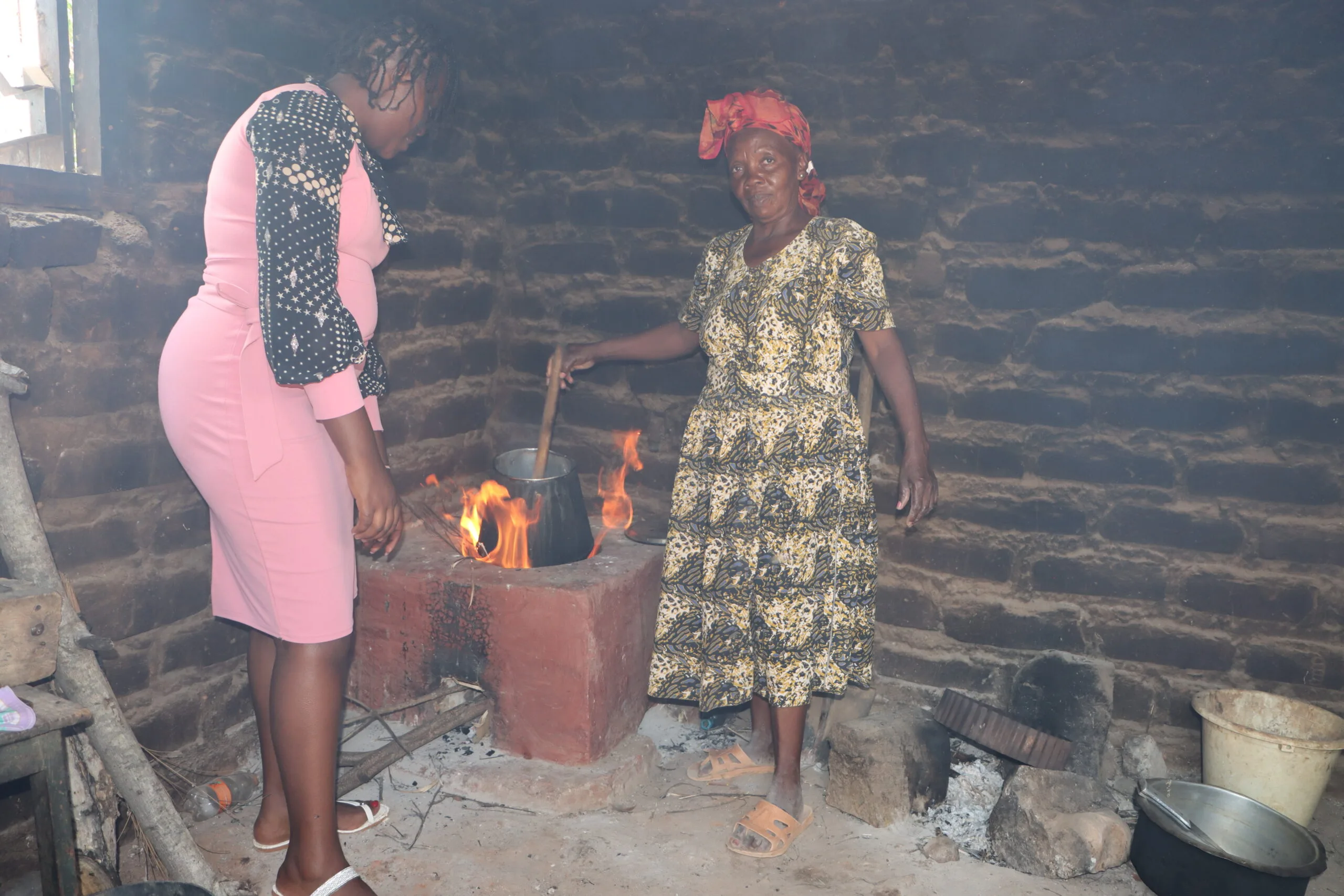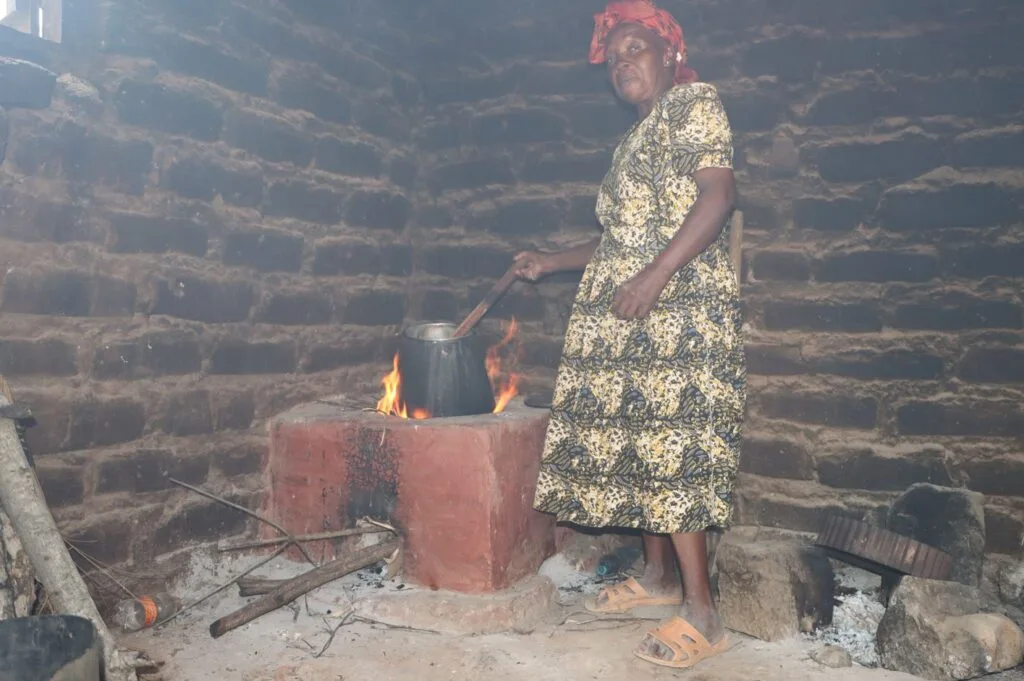Rocket stove transforms homes and health
 Rose Mueni (right) and Winfred Kariuki stand beside Mueni’s new rocket stove, with the former stove to the right.
Rose Mueni (right) and Winfred Kariuki stand beside Mueni’s new rocket stove, with the former stove to the right.December 23, 2024
By Jacqueline Tingle
Rose Mueni, 59, lives in rural Kenya. The mother of nine works hard to feed her family and like so many of her neighbours, she cooks meals over an open fire in her kitchen hut. But thanks to a new project with the Anglican Development Services Eastern (ADSE), funded by PWRDF, Mueni is now breathing easier with the addition of a rocket stove.
The traditional method of cooking inside, over an open fire, creates environmental challenges for the community. The excessive smoke produced by open fires posed a significant health threat to Mueni’s family, particularly to the women and children who spend more time in the kitchen than men.
The rocket stove has been a game-changer for Mueni. Constructed by Winfred Kariuki, a trained Community-Owned Resource Person (CORPs), the rocket stove is built with locally sourced materials and is designed to be energy-efficient, environmentally friendly and less damaging to the health of people using it.
In a rocket stove, wood is fed into a small chamber, so even small pieces of wood or twigs work. The fuel chamber leads to a horizontal “burn tunnel” that sucks the heat and emissions from the fire. These emissions, such as soot or creosote are combusted in the burn tunnel, releasing even more heat, but not smoke, improving indoor air quality.

“The rocket stove has been a blessing to my family,” says Mueni. “It saves firewood, produces less smoke, and has improved our health. I am thankful to Winfred and the program for making this possible.”
One of the most significant advantages of the rocket stove is its reduced firewood consumption because it is built to burn wood more efficiently. This lessens, the physical burden on the person cooking and leads to cost savings for the family.
By reducing firewood usage, the household also contributes to preserving trees in the location, aligning with bigger goals to combat deforestation and mitigate climate change.
“Look at how cleanly the fire burns now, with no smoke!’ says Mueni. “We are so grateful to the Primate’s World Relief and Development Fund and ADSE for making this project possible.”
In Mueni’s kitchen, she and Kariuki show the traditional three-stone stove she once used and the soot-stained kitchen walls it left behind.
The project has also had a positive impact on the local community, particularly in terms of empowering women and youth. Kariuki, the woman who constructed Rose’s stove, has gained a valuable skill set and a steady income source, enabling her to contribute to her community’s development and help provide for her family.
For media requests, please email Communications and Marketing Coordinator Janice Biehn at [email protected].
